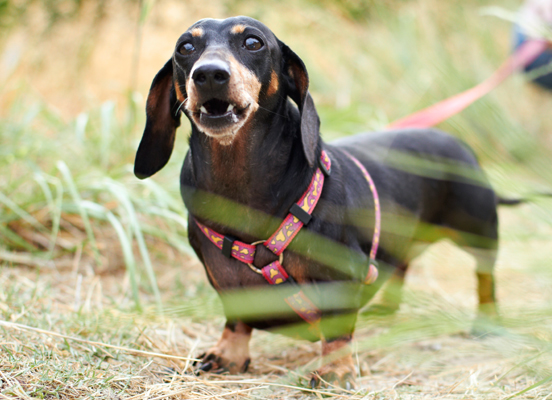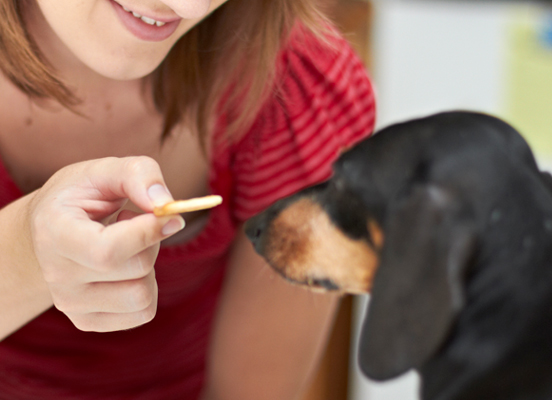Challenging behaviour can be upsetting, but it can often be managed and resolved with the right information and guidance.
At NVRS, we offer diagnosis and treatment of canine behavioural disorders. Our programmes cater to all temperaments and include group courses in basic obedience to advanced, one-to-one training.


Training methods focus on positive reinforcement and are tailored to each individual dog’s motivation. This may include stimulation and reward through treats, praise, petting and toys. When training, it is paramount to determine a dog’s specific motivation, to ensure the best possible outcome for each case and to avoid harsh training methods.
We understand that maintaining high standards of behaviour depends on an owner’s own confidence and consistency in their training techniques, as well as the dog. Our behaviourist offers ongoing support, both in person and over the telephone, to ensure training standards are maintained and the client is happy with their dog’s progress.
We accept referrals for the following cases:
- Dog-to-dog aggression
- Dog-to-people aggression
- Biting/ nipping
- Nervous aggression
- Dominant aggression
- Excessive barking
- Pulling on the lead
- Unruly behaviour in the home
- Safe practice with children
- House soiling/ marking
- De-sensitisation work
- Diet, food and related canine behaviour
- Jumping up
- Over-excitement with visitors
- Chewing/destructive behaviour
- Digging problems
- Nervous behaviour, fear and phobias (e.g. fireworks)
- Car travel problems
- Recall issues: failing to return
- Toilet training issues
- Separation anxiety
- Rank issues within the home
- Behavioural issues secondary to medical problems (e.g. pain, epilepsy)
We provide training and behaviour solutions to suit both the animal and the owner, including:
- Basic, intermediate and advanced obedience group sessions
- One-to-one bespoke obedience training at various levels
- One-to-one obedience training at the client’s home
After a behaviour referral form has been completed, the animals behaviour and modification methods will be assessed from the client’s home. This can vary between reactivity/ aggression cases, barking, jumping up, anxiety and boredom issues etc. Additional ongoing advice and reassurance will also be provided via telephone.

